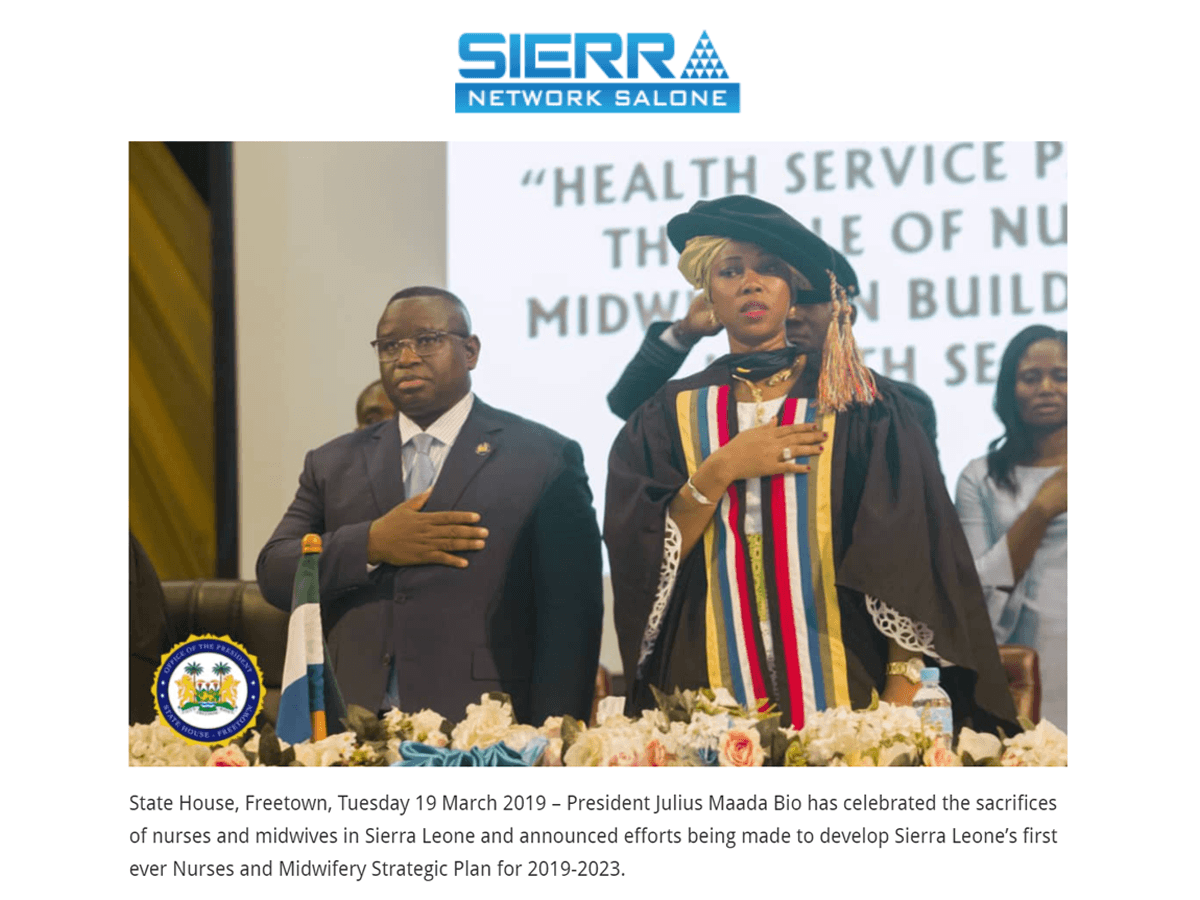ICAP’s Resilient and Responsive Health Systems (RRHS) project in Sierra Leone, funded by the U.S. Health Resources and Services Administration (HRSA), advances nursing and midwifery through strengthening workforce capacity, improving systems to support human resources for health, and advocating for nurses to have a voice in decision making at all levels of health administration.
These efforts have played a major role in the development of the first-ever national Nursing and Midwifery Strategic Plan, announced this week by President Julius Maada Bio.
“I am always curious but eternally thankful about how nurses and midwives combine their professional training with acute critical thinking and mix all of that with compassion, care, communicating with empathy, and building trust as caregivers,” he said, adding that the strategic plan would lay out six major pathways for developing the nursing education and practice in the country.
The principal of the National School of Midwifery, Dr. Joan Shepherd, said the presence of President Bio at the event was a resounding testament of his commitment to building a strong, resilient and responsive health workforce and more importantly a manifestation of his support to moving the nursing and midwifery agenda forward in Sierra Leone.
“In these challenging times, nurses and midwives, who form the largest workforce globally, deserve more attention and focus more than ever before. There has been an increase in the importance of the work of nurses and midwives globally. We are players in building global health security and we remain at the centre of the global health system,” she said.
Read the full article on Sierra Network Salone







